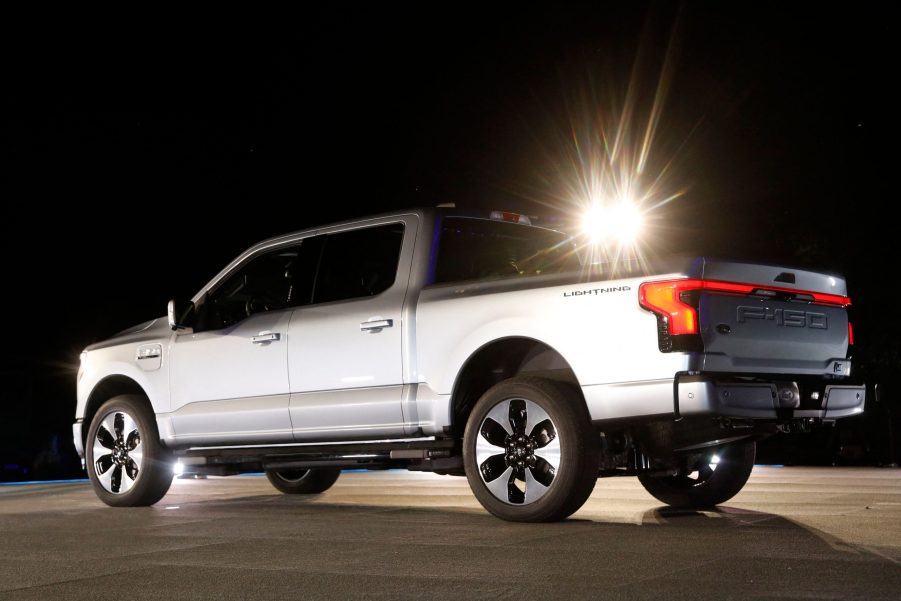
If Biden’s Plan Passes, Electric Car Tax Credits Will Be Better Than Ever
The term “EV tax credits” is thrown around a lot. But for this article, I’ll try and simplify what the current tax credit procedures are, and how President Biden’s new proposal will make buying an electric car a no-brainer. Not only are the tax credits themselves getting higher, but they’ll be transferable and refundable. So let’s take a deep dive into our current electric car tax credit plan, and compare it to Biden’s new one.

Understanding the $7,500 federal EV tax credit
Many major automakers promote the $7,500 EV tax credit on their website. But truth be told, that tax credit doesn’t actually apply to the sticker price of an electric car. In order to claim these tax credits, you have to do the heavy lifting and write them off on your annual tax returns.
Not only that, but the $7,500 tax credit is linked to your income. That means if you don’t make at less than $68,000 a year, you won’t get the full $7,500 back on your returns. So while this incentive is better than nothing, it’s not perfect.
And as of right now, the most popular electric cars on the market aren’t even eligible for these EV tax credits. Tesla and General Motors have both used up their 200,000 credits, having sold well over that many models. And as more electric cars pass that benchmark, their prices will go up again.
The current tax credit proposal, in reality, wasn’t aimed at middle-class car buyers either. According to the Congressional Research Service, 78% of people who reaped the benefits from these tax credits made over $100,000 a year. But this new proposal may shift the demographic.
How the new $12,500 electric car tax credit in Biden’s proposal benefits the middle-class

The two most important words of Biden’s tax credit proposal make it hard to resist: transferable and refundable. Refundable is fairly explanatory. Whether you make $50,000 a year or $500,000 a year, you will get every penny returned to you in some way. Uncle Sam will write it off your taxes then send you a check for the remaining amount if applicable.
Transferable, however, is an incredible feat for anyone trying to sell a new electric car. Essentially, the tax credit can be shifted from you to the sticker price. So rather than you having to write the $12,500 tax credit off, the dealership can mark the car down themselves (though, at that point, it wouldn’t be eligible for tax credits again).
This would easily make electric cars more accessible to everyone, regardless of income. But there are some contingencies to this tax credit, as not all-electric cars on the market will be eligible.
The major contingencies attached to this proposed EV tax credit

For starters, the tax credit only applies to electric cars that cost $55,000 or less, vans that cost $64,000 or less, and pick-up trucks that cost $75,000 or less. Personally, I feel like this is urging people to buy an electric truck more than an electric car. However, since trucks vastly outsell cars in the states, it makes sense to give more people more options.
But the real issue that certain automakers are fighting against is that these tax credits only apply to union-built cars. And the batteries have to be assembled in the united states. For companies like Ford and GM, building battery plants across the country, this is great. For foreign automakers or non-union manufacturers like Tesla, this is a setback.
Foreign cars that don’t meet the requirements may still get $7,500 credits. But at a $5,000 deficit, this gives unionized, U.S. automakers a severe advantage over the competition. But nobody’s been affected by this, as the bill still hasn’t been passed.
All this prose is wrapped up in Biden’s “Build Back Better” bill (try saying that five times fast). And it’s still a long way from passing. Because the bill encompasses so many things, the reconciliation of it isn’t getting through congress. There isn’t even a date to vote on the bill yet.
So whether this dream $12,500 electric car tax credit comes to fruition or not is up for debate. But if we want to see people buying more electric cars, and real change that’ll help the environment, bills like this have to pass.


